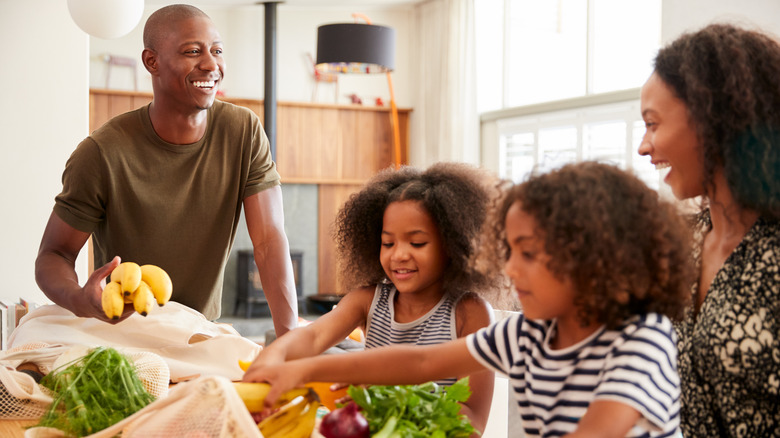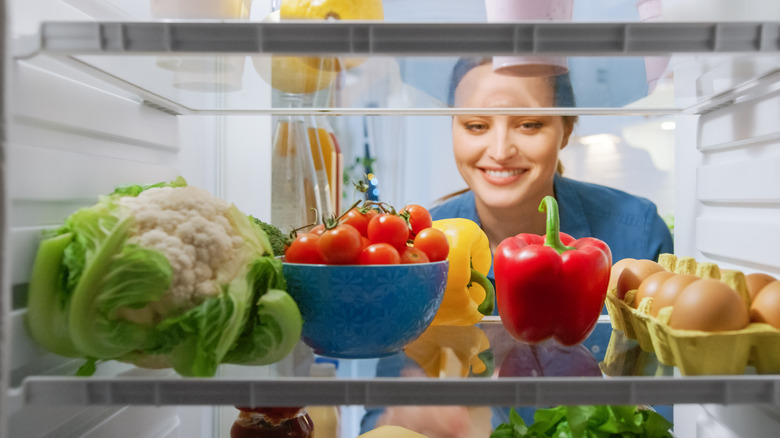The Biggest Mistake You're Making When Putting Away Groceries
Whether you dread it or love it, grocery shopping is an unavoidable household chore that has to be done regularly, and then repeated again and again. Food budgets are being stretched to the limit in 2021, as the average American family of two spent approximately $938.50 per month in April, and the typical family of four was spending around $1,120.90 per month (via BalancingEverything). Grocery bills are no laughing matter.
While it may be pretty common to put a bit of thought into the food you purchase every month, how often do you think about how those expensive groceries are being handled and stored once you get them home? Putting away your groceries in a way that ensures that they will maintain their freshness for as long as possible can go a long way in helping you get the most bang for your buck at the grocery store. Here are some of the biggest mistakes to avoid when you bring your groceries home from the store and start to put them away.
The do's and don't's of grocery storage
Although it may seem like common sense, one of the first things to do is put away the perishable, and/or frozen items first. In an interview with The Kitchn, experts suggest dumping all the bags on a countertop, so you can organize upfront and avoid opening and closing the pantry and refrigerator multiple times as you put groceries away individually. They also recommend refraining from snacking on the food you purchased, as this will slow you down and ultimately make food spoil faster unless you take the time to store it properly in sealed bags or plastic containers after opening.
Another mistake to avoid when putting groceries away has to do with pre-washing produce and proteins. Although it may seem counterintuitive, it's best to wait to wash any vegetables, herbs, and even fruit until you are ready to eat it (via Brunswick Crossing). Moisture can make fruit and vegetable mold or degrade quickly and diminish their shelf life. The outlet also recommended that meat and poultry, in particular, should not be washed before storing or cooking as it increases the potential spread of bacteria. "Even when consumers think they are effectively cleaning after washing poultry, bacteria can easily spread to other surfaces and foods," explained Mindy Brashears, USDA Deputy Under Secretary for Food Safety (via ScienceAlert).

